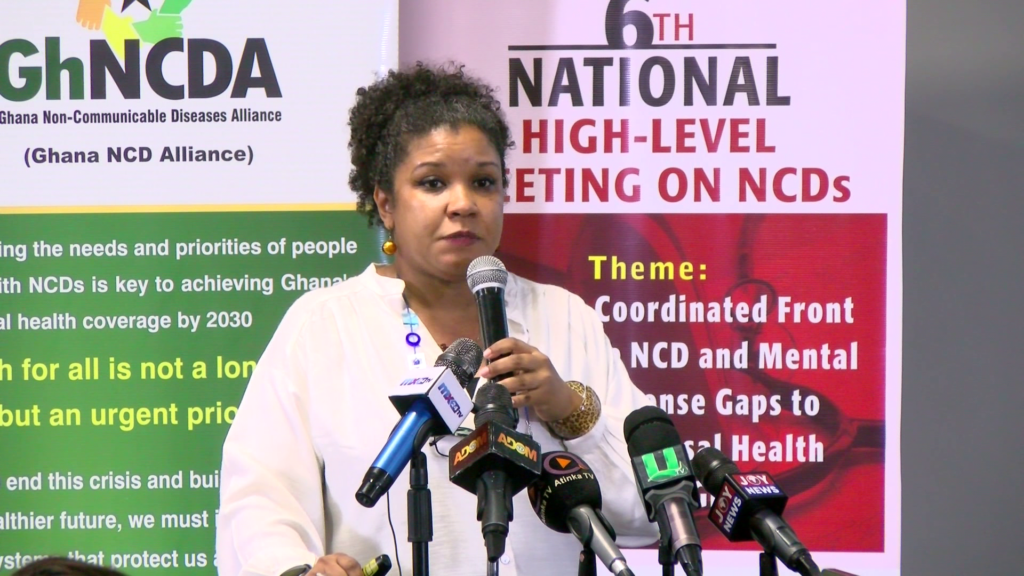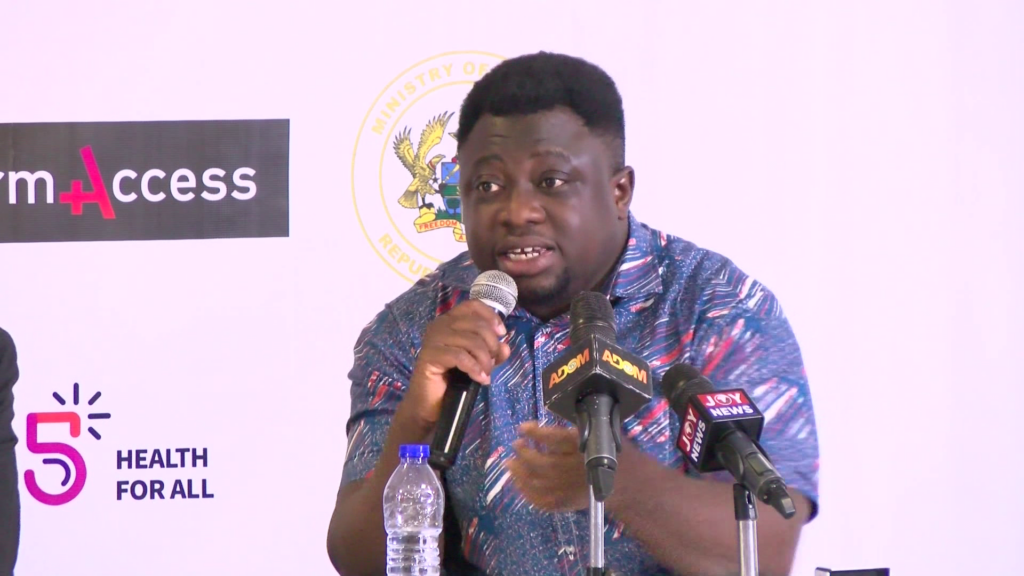
Audio By Carbonatix
The President of the African Academy of Neurology, Dr Augustina Charway-Felli has raised concerns about the number of people dying from Non-Communicable Diseases (NCDs).
According to her, the situation poses a threat to economic growth.
Non-Communicable Diseases (NCDs) are diseases that are mostly lifestyle-based. They have a low probability of transfer from one person to the other.
According to the World Health Organisation (WHO), 28 lives are lost each minute to non-communicable diseases, out of which 25 occur in developing countries like Ghana.
Touching on this, Dr Charway-Felli emphasised that mental health disorders are a significant contributor to the disability-adjusted life years (DALY).
She said this at the 6th National High-Level Meeting on NCDs under the theme; "Building a coordinated front to bridge the NCDs and Mental Health response gaps to achieve universal health coverage in Ghana" which was organised by the Ghana Non-Communicable Diseases Alliance.

She noted that the crucial point to consider is not merely the presence of non-communicable diseases but rather identifying those affected and the need to address them.
“If we do not address these problems, we are also condemning society to be not as productive as it should be and there are economic repercussions to that,” she added.
The President of the African Academy of Neurology underscored the importance of preventing non-communicable diseases, emphasising that prevention is not only superior to cure but also more cost-effective.
Dr Charway-Felli highlighted that while the diseases can be managed, obtaining a cure is exceedingly rare.
She noted that there is the need to move from a curative management model, which is the one currently in place to a preventive model, stating that this can be achieved by educating people about the diseases and ways to prevent them.
An NCD patient, Christopher Agbega, who is an advocate for NCD persons in Ghana stressed that the challenges confronting his kind are daunting; from being jobless to solely depending on friends and family for support.

He stated that beyond financial implications on the individual, there is a daily struggle with the physical and emotional toll on victims.
“Imagine waking up each day knowing that your body is at war with itself. The fatigue, pain and emotional distress become constant companions”.
The Chief Programs Officer in charge of Medical and Dental at the Ministry of Health, Dr. Baffuor Awuah who represented the Minister of Health, Kwaku Agyeman Manu assured victims of NCDs that structures were being put in place to give them the best health care possible.
Stakeholders of the Ghana Non-Communicable Diseases Alliance called for collective action to be taken to fight these diseases.
They also urged the government to adopt innovative measures to curb the numerous deaths associated with NCDs.
Latest Stories
-
Ghana is rising again – Mahama declares
41 minutes -
Firefighters subdue blaze at Accra’s Tudu, officials warn of busy fire season ahead
1 hour -
New Year’s Luv FM Family Party in the park ends in grand style at Rattray park
1 hour -
Mahama targets digital schools, universal healthcare, and food self-sufficiency in 2026
1 hour -
Ghana’s global image boosted by our world-acclaimed reset agenda – Mahama
2 hours -
Full text: Mahama’s New Year message to the nation
2 hours -
The foundation is laid; now we accelerate and expand in 2026 – Mahama
2 hours -
There is no NPP, CPP nor NDC Ghana, only one Ghana – Mahama
2 hours -
Eduwatch praises education financing gains but warns delays, teacher gaps could derail reforms
2 hours -
Kusaal Wikimedians take local language online in 14-day digital campaign
3 hours -
Stop interfering in each other’s roles – Bole-Bamboi MP appeals to traditional rulers for peace
3 hours -
Playback: President Mahama addressed the nation in New Year message
4 hours -
Industrial and Commercial Workers’ Union call for strong work ethics, economic participation in 2026 new year message
6 hours -
Crossover Joy: Churches in Ghana welcome 2026 with fire and faith
6 hours -
Traffic chaos on Accra–Kumasi Highway leaves hundreds stranded as diversions gridlock
6 hours

